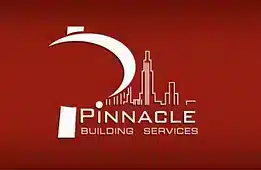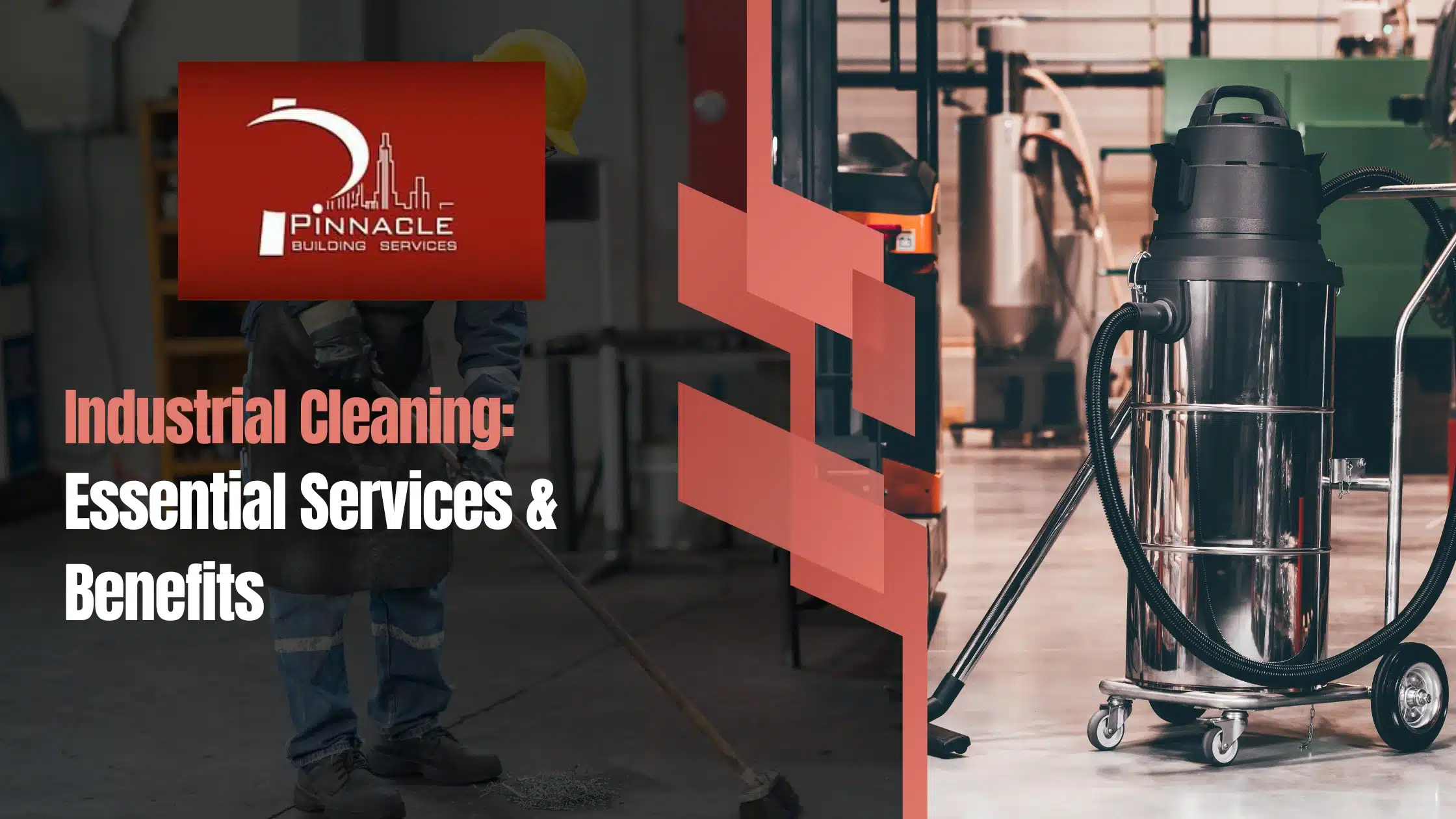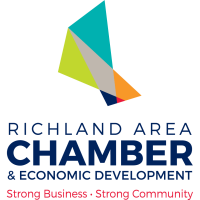Industrial and janitorial cleaning services are the powerhouse behind maintaining the efficiency and safety of work environments in various sectors, including manufacturing facilities and production areas. It’s a field in industrial facilities that demands robust solutions to tackle tough grime, hazardous waste, and everyday dirt that can compromise machinery and health during routine and general cleaning in an industrial setting. With an authoritative approach, this post delves into the essentials of industrial cleaning practices, offering insight into innovative foam techniques and low-pressure products designed for heavy-duty tasks. By understanding these methods, businesses, particularly industrial facilities, can ensure their operations run smoothly without falling prey to downtime caused by inadequate maintenance, including routine cleaning, in an industrial setting.
In today’s fast-paced industrial setting, staying ahead means implementing effective cleaning strategies tailored to meet stringent standards. This blog will guide you through the pivotal role industrial cleaning plays in optimizing performance across facilities while adhering to environmental regulations and worker safety protocols.
Understanding Industrial Cleaning
Importance
Industrial cleaning is not just about keeping a space tidy. It’s vital for industrial hygiene. Clean environments stop germs from spreading. This protects worker health and safety. Dirty equipment can fail, causing delays or accidents.
Ensures hygiene standards are met.
Keeps workers safe.
Prevents equipment issues due to dirt or grime.
Safety and Productivity
Clean workplaces have fewer accidents. They also make machines run better and last longer. Workers in clean spaces focus better too. This leads to more work done well.
A dirty floor might cause someone to slip and fall, which could be prevented with regular cleaning. When machinery is kept clean, it doesn’t break down as often, saving time and money on repairs.
Technology Integration
Modern technology makes industrial cleaning precise and efficient.
Advanced machines reach every corner for thorough cleaning without missing spots. Software helps track when an area was last cleaned or if it meets cleanliness standards required by law or company policy.
Robots can safely clean where humans cannot easily go—like high ceilings or toxic areas—without risking their health.
Covid-19 Disinfection
Since the pandemic began, disinfection has become even more critical in industrial settings:
Companies follow CDC guidelines strictly to keep surfaces virus-free. They use chemicals that the EPA confirms kill SARS-CoV-2 effectively. Regular disinfecting routines help prevent viruses from spreading among workers.
Types of Industrial Cleaning Services
Deep Cleaning
Industrial settings often face the challenge of built-up grime and residue. This is especially true for heavy machinery. Deep cleaning services tackle this issue head-on. They focus on removing layers of dirt that can affect machine performance. Over time, without deep cleaning, equipment may degrade faster.
The process involves more than just wiping surfaces. It gets into the nooks and crannies of machines. Think about a gear caked with old oil and debris; deep cleaning would remove all that gunk thoroughly.
Ensures longevity of machinery
Maintains optimal performance levels
Provides a safer working environment by reducing potential hazards linked to excessive buildup
Mold Remediation
Mold in industrial spaces isn’t just unsightly; it’s harmful too. Mold remediation services are crucial for maintaining health standards in such environments. These experts identify mold at its source and take steps to eliminate it.
This service doesn’t just clean up visible mold; it prevents future growth as well. By doing so, it protects buildings from structural damage caused by mold infiltration.
Here’s what you get with professional mold remediation:
A thorough assessment to find all mold sources
Removal processes tailored to your specific industrial setting
Improved air quality through eradication of airborne spores
Combustible Dust
Combustible dust can be a silent threat in factories and manufacturing plants. If not managed properly, this dust could lead to catastrophic explosions or fires. Cleaning services aimed at controlling combustible dust are specialized operations. They reduce the risk by keeping accumulation under control.
These services don’t only clean—they implement safety measures too. For example, they might use vacuum systems designed specifically for hazardous materials. Their work ensures compliance with Occupational Safety and Health Administration (OSHA) regulations regarding combustible dust handling.
Key benefits include:
Reduced risk of fire or explosion due to effective management of dust particles
Compliance with OSHA guidelines ensuring legal operation standards are met
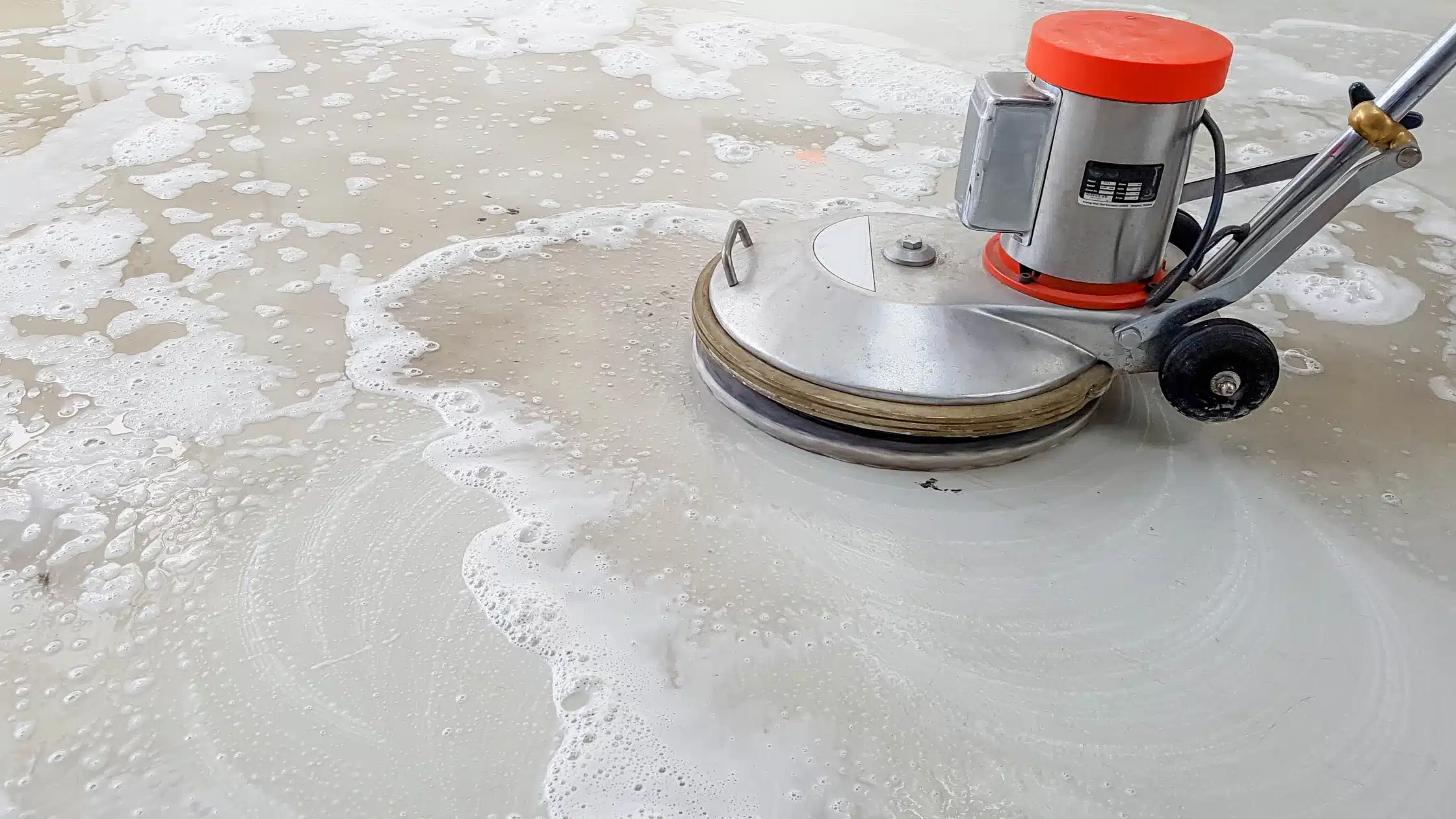
Professional Industrial Cleaning Services
Hiring a Service
When selecting an industrial cleaning company, it’s crucial to consider certain criteria. Look for companies with a solid reputation. Check their track record and read reviews from other businesses. A reputable firm should have positive feedback and proven results.
Trained professionals are essential in this field. They know how to handle complex machinery and hazardous materials safely. Their expertise can prevent accidents and ensure efficient cleaning. Ask about the training programs they offer their staff.
Another key point is the service cost versus potential ROI in maintenance savings. Compare prices, but don’t just go for the cheapest option. Consider how thorough services can extend your equipment’s lifespan, saving money long term.
Specialized Equipment
Industrial cleaning requires high-grade tools specific to heavy-duty tasks. These aren’t your average mops and buckets; we’re talking about high-pressure washers, industrial vacuums, and chemical dispensers designed for tough grime.
Regular updates of this equipment are vital too; outdated tools won’t do as good a job or could break down mid-task, costing time and money.
High-quality machines clean more effectively.
Updated technology ensures compliance with safety regulations.
Well-maintained tools last longer before needing replacement.
Finally, customization of machinery may be necessary for unique industry needs. For example:
A food processing plant might need steam cleaners that reach high temperatures to sanitize surfaces thoroughly.
An automotive factory could require specially formulated solvents for degreasing parts without damaging them.
This kind of specialized approach ensures each sector gets exactly what it needs from industrial cleaning services.
Chemicals in Industrial Cleaning
Safe Usage
Industrial cleaning often involves chemicals that can be harmful if not handled correctly. Training protocols are crucial for the safe operation of cleaning equipment. Workers must know how to use machines properly. They should also understand the risks associated with each chemical they use.
Proper personal protective equipment (PPE) is a must during these processes. Gloves, goggles, and suits protect workers from skin and eye irritation or worse injuries. It’s not just about wearing PPE but making sure it fits well and is right for the job at hand.
Compliance with safety standards helps prevent accidents in workplaces where industrial cleaning takes place. Regular audits ensure practices stay up-to-date with current regulations.
Training on proper machine use.
Wearing suitable PPE.
Following updated safety guidelines.
These steps help create a safer environment for everyone involved in industrial cleaning tasks.
Environmental Impact
The impact of industrial cleaning on our planet cannot be ignored. More companies are adopting green cleaning practices to lessen their ecological footprint. This means choosing methods and products that do less harm to the environment.
Hazardous waste generated from industrial cleaning requires careful disposal. Companies must follow strict guidelines to avoid contaminating water sources or harming wildlife. Sometimes this involves working with specialized disposal services who handle hazardous materials safely.
Where possible, using eco-friendly products makes a big difference too:
Biodegradable cleaners break down naturally.
Non-toxic substances don’t pose health risks like traditional chemicals might.
Choosing these alternatives shows commitment to protecting our planet while still maintaining high cleanliness standards in industries across the board.
Warehouse Cleaning Strategies
Space Organization
Cleanliness is key in optimizing a warehouse’s layout and flow. A clean space allows for better visibility and easier movement. It makes finding tools and materials faster. This boosts productivity.
Clutter reduction is another benefit of cleaning. It creates more room for operations. Less clutter means fewer obstacles to navigate around, which can speed up work processes.
After cleaning, organizing tools and materials is crucial. A systematic approach ensures everything has its place. This helps maintain the cleanliness and order achieved during cleaning.
For example, after clearing debris, workers might label shelves for specific parts. They could also set aside areas for equipment that needs frequent access.
Maintenance Support
Scheduled cleaning should be part of routine maintenance programs. Regularly cleaned spaces can reveal issues like leaks or wear on machinery before they worsen.
Consistent upkeep extends the lifespan of industrial assets like machines and tools by preventing dust build-up or corrosion from unchecked spills that may contain chemicals discussed in previous sections about industrial cleaning products.
Proactive inspections during cleanings can save money on repairs later on. For instance, spotting a frayed wire early could prevent an electrical fault down the line.
Comprehensive Facility Solutions
Tank Cleaning
Tank cleaning is vital for industrial safety. It deals with removing hazardous substances from storage tanks. These tanks often hold chemicals or fuels. Special care is a must to ensure worker and environmental safety.
The first step in tank cleaning is to assess the risks. Professionals consider what’s inside the tank before starting. They plan how to handle and dispose of waste materials safely.
Next, they use techniques that prevent contamination during cleaning. For example, they might use closed-circuit systems that capture and filter out pollutants. This way, harmful substances do not escape into the environment.
Cleaning these tanks also involves following strict protocols for hazardous substances handling. Workers wear protective gear to guard against exposure to dangerous chemicals.
They follow detailed procedures designed for each specific type of substance within the tank. These measures are crucial because mistakes can lead to serious accidents or pollution incidents.
Storm Drain Maintenance
Storm drain maintenance prevents flooding in industrial areas. It ensures that stormwater runoff flows away without causing damage. Regular inspection and clearing are part of this process.
Firstly, workers check drains regularly for blockages. They remove leaves, trash, or other debris that could cause clogs. This task might seem simple but it’s essential for preventing water buildup during heavy rains.
Secondly, maintaining storm drains keeps industries compliant with local regulations. Many areas have strict rules about managing stormwater runoff. Industries must show they are controlling their impact on local waterways effectively.
By keeping up with these maintenance tasks, industrial facilities avoid costly damages from uncontrolled water flow.
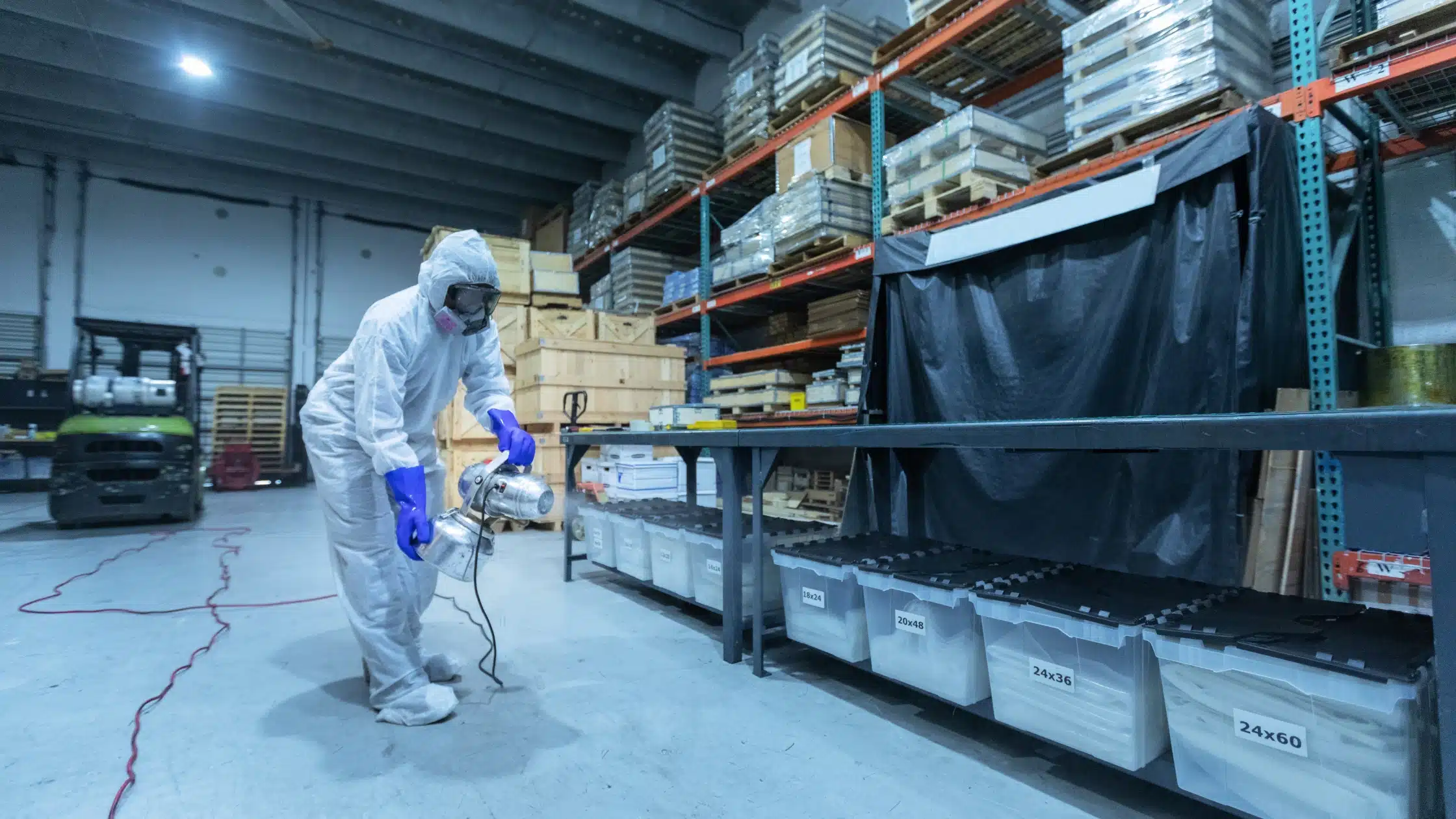
Specialized Cleaning Techniques
Hydroblasting
Hydroblasting uses high-pressure water to clean surfaces. It works well for preparing surfaces and removing coatings. The process is precise, which means it can target just the dirt without harming the surface underneath.
The benefits of hydroblasting are significant. It cleans without chemicals, which helps the environment. This method reduces harmful waste and pollution. Businesses looking to be eco-friendly often choose hydroblasting.
However, safety is crucial with this technique due to its high pressure. Workers need protective gear and training to handle equipment safely.
Vacuuming
Industrial-grade vacuum systems tackle tough cleaning jobs. They are powerful tools for any facility needing a thorough cleanup operation.
These vacuums do more than just pick up dust and debris on floors.
-
They clear airborne particles,
-
improve indoor air quality,
-
they have filters that capture fine materials,
This makes them ideal for factories or warehouses where air purity matters.
Vacuum systems also stand out because of their versatility. They can handle dry substances like sawdust or wet spills equally well. Some even deal with hazardous materials safely, ensuring worker health isn’t compromised during cleanup tasks.
Preparing for Construction Cleaning
Pre-Cleaning Steps
Before the actual cleaning begins, a thorough assessment is crucial. This step determines which methods and tools are best. It’s about looking at the space and figuring out what needs to be done. For example, if paint is splattered on windows, you’ll need scrapers and window cleaners.
The next move involves securing sensitive areas or equipment. Electronics or delicate surfaces might get damaged during cleaning. So we cover them up or move them aside safely.
Finally, planning the workflow is key to minimize downtime. We need a plan that keeps things moving without much interruption to other work going on in the area.
Post-Construction Cleanup
Once construction wraps up, it’s time for cleanup. The first task here is removing all debris and dust left behind by builders. Think chunks of drywall, nails, sawdust – they all have to go.
Then comes adding those final polishing touches that really make new spaces shine—literally! Windows are cleaned until they sparkle; floors are swept and mopped until they reflect light brightly.
We ensure every corner looks perfect so that when people walk in, it feels ready for use immediately after our team leaves.
Emergency Response and Remediation
Quick Response
In the world of industrial cleaning, emergencies demand immediate attention. Spills or accidents can happen without warning. Companies must be ready. A quick response is crucial to minimize damage and downtime. Industrial cleaners with rapid mobilization capabilities are essential.
They bring teams and equipment fast to an incident site. This helps control the situation quickly. It’s important for businesses to have a contingency plan in place. They should include an arrangement with an industrial cleaner on standby.
For example, if a chemical spill occurs at a manufacturing plant, every second counts towards preventing harm to workers and the environment. An industrial cleaner on standby can arrive promptly, manage cleanup efforts efficiently, and restore operations swiftly.
Abatement Services
Abatement services are specialized tasks within industrial cleaning that deal with removing hazardous materials like asbestos or lead from buildings or machinery safely.
These procedures follow strict regulations set by government bodies such as OSHA in the United States or HSE in the UK to protect workers’ health and safety as well as environmental standards.
Technicians performing these tasks undergo specialized training due to the risks involved when handling dangerous substances.
To illustrate this point: during renovations of older buildings where asbestos insulation may be present, trained abatement professionals ensure its safe removal according to legal requirements before construction crews proceed with their work.
Advantages of Commercial Cleaners
Pinnacle Building Services
Top-tier industrial cleaners, like Pinnacle Building Services, set the standard in cleaning excellence. We offer a range of services that go beyond basic cleaning. Our teams tackle complex tasks with ease. This includes deep cleans and maintenance for specialized equipment.
Pinnacle’s success stories are impressive. We have case studies showing how their strategies transform workplaces. Clients see increased efficiency after a thorough clean-up. These outcomes aren’t just about looking good—they’re about better function and safety too.
Reliability is key in this industry. Top cleaners show up on time and deliver as promised. Customers trust them because they consistently meet high standards. Accreditations from industry bodies further prove their commitment to quality service.
Tailored Solutions
Every workplace has unique needs. That’s why commercial cleaners offer customized plans tailored to specific industries and facilities. They consider factors like workspace layout, machinery present, and even staff workflow.
Flexibility is another big advantage of professional cleaning services. They work around your schedule so there’s minimal disruption to production. This means you can get top-notch cleaning without halting operations—a win-win situation!
Collaboration between service providers and clients leads to the best results. Cleaners listen to client needs closely. Together, they develop a plan that hits all the targets for cleanliness while accommodating business operations.
Summary
Industrial cleaning is an essential service that ensures the safety, efficiency, and longevity of facilities. We’ve explored the diverse services available, from warehouse strategies to specialized techniques and emergency responses. The use of professional cleaners and appropriate chemicals underlines the importance of expertise in maintaining industrial hygiene. These services provide comprehensive solutions that are crucial for operational success and adherence to health standards.
Recognizing the value of these cleaning services is pivotal for any business aiming to uphold high-quality standards. Engage with a trusted commercial cleaner to safeguard your facility’s integrity. Take action now to invest in a clean and productive work environment. Contact a professional industrial cleaning service today to experience the advantages firsthand.
FAQs
What is industrial cleaning?
Industrial cleaning involves specialized techniques to clean and maintain facilities like factories, warehouses, and power plants.
What services do professional industrial cleaners offer?
Professional industrial cleaners provide comprehensive facility solutions including machinery degreasing, waste management, and sanitation services.
Are chemicals necessary for industrial cleaning?
Yes, specific chemicals are often used in industrial cleaning to effectively remove grease, grime, and other stubborn contaminants.
Can I hire a cleaner for post-construction cleanup?
Absolutely. Many commercial cleaners specialize in construction site cleanup preparing the area for final inspection or handover.
What should I expect from emergency response cleaning services?
Expect rapid deployment of trained professionals to manage spills or hazardous situations with efficiency and compliance to safety standards.
How can warehouse cleaning strategies benefit my business?
Effective warehouse cleaning enhances safety, productivity by reducing clutter and potential hazards while maintaining asset quality.
